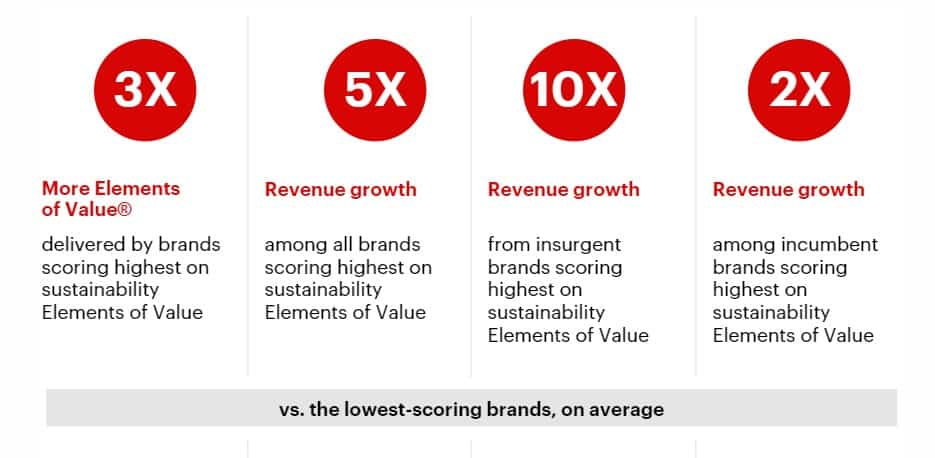A new generation of purpose-led brands is successfully expanding into mainstream consumer markets to challenge incumbents but still face a unique set of challenges.
Analysis from Bain & Company and Verlinvest identifies an emerging formula for how these insurgent brands can scale up successfully, along with lessons for existing market incumbents to learn from those that do.
The report Purpose-led Brands Can Reshape the Consumer Good Industry If They Can Scale shows long-term shifts that are being driven by younger consumers who prioritise sustainability and purpose as part of their purchasing criteria in a way that previous generations have not.
Shifting baseline
Most consumer product supply chains were established after the Second World War on systematic principles that prioritised price, consistency, and quality – typically without consideration for often unintended external implications.
Today, the baseline expectations of consumers have risen, and a new crop of purpose-led brands has emerged to address these challenges and eliminate harmful environmental, social and health impacts of production.
By addressing these challenges, purpose-led brands are not only tackling important ESG concerns but adding value back into markets where costs currently outweigh industry value. For example, costs in the food industry amount to US$11.9 trillion due to issues such as obesity and greenhouse gas emissions, which outweigh the industry’s US$10T value.
By building new growth models, the report finds that insurgent brands scoring the highest on sustainability have as much as 10 times higher revenue growth than traditional brands.

Source: Purpose-led Brands Can Reshape the Consumer Good Industry If They Can Scale, 2022
This growth is creating a flywheel: purpose-led brands typically gain traction by creating issue awareness: this drives consumer interest in their products – with 70% of consumers willing to pay a reasonable premium (~10-25%) for sustainability – spurs retailer demand and attracts and motivates high-quality employees.
These factors all lead to better growth and, in turn, higher interest from investors. Given this, it is perhaps not surprising that 35% of all new consumer products start-ups have a clear ESG mission, a tenfold increase since 2005.
Purpose-led brands are also becoming more successful at scaling, with 7% reaching more than €50 million in revenue versus 4% for consumer-packaged goods overall.
However, successfully scaling a purpose-led startup poses its own set of challenges. Of the founders surveyed, a large majority (71%) mentioned barriers related to consumers and distribution as the leading challenges to scale, while over half (62%) mentioned supply chain and 24% organisation. Despite obstacles, the research shows that successful brands do three things well, which incumbent businesses should take heed of if they want to keep up.

They provide a recognised value proposition accessible at mass-market price points, they build sustainable supply chains, and they maintain an uncompromising sense of purpose to team members and consumers.
Jean-Charles van den Branden, a Bain & Company partner and co-head of its global Sustainability & Responsibility practice, says sustainable insurgents are disrupting the consumer products industry and breaking down externalities.
“They force incumbents to look at sustainability in a more disruptive and intentional way. Sustainable insurgents are still in their scaling-up phases, however, incumbents don’t have a lot of time to re-invent their supply chains and embed sustainability deeper in everything they do,” he concluded.




